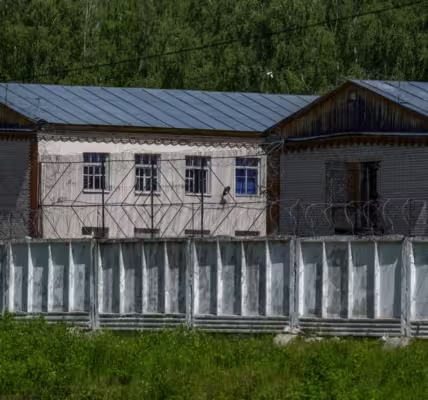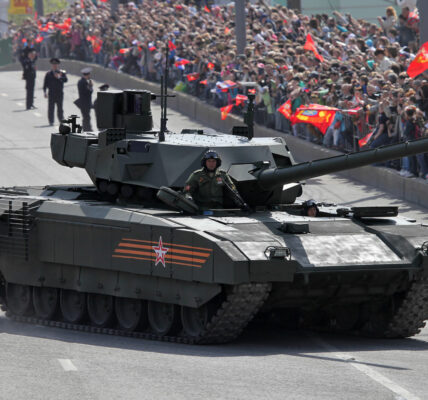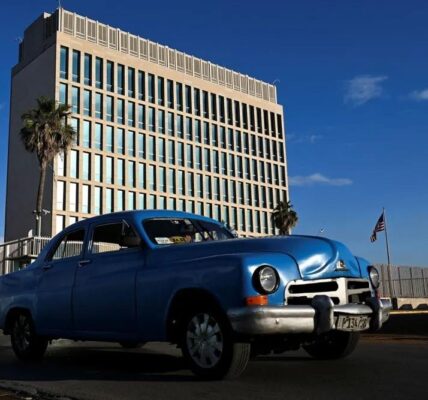
Ukraine’s security forces have thwarted a purported coup plot against President Volodymyr Zelensky. In a Telegram post, the Security Service of Ukraine (SBU) revealed that four conspirators were scheming to incite a riot in central Kyiv on 30 June, intending to use the chaos as a cover to seize control of the Ukrainian Parliament. This disclosure comes against the backdrop of former Russian Deputy Defence Minister Tatyana Shevtsova’s defection to France.
Photos released by the SBU showed officers wearing balaclavas, arresting several alleged plotters. Operations focused on the Ivano-Frankivsk region in western Ukraine, where pro-Russia agitators had stashed weapons caches, including assault rifles, a sniper rifle, and handguns. Cartons of ammunition, laptops, mobile phones, and hand-drawn coup instructions were also discovered during the raids.
Four men are under investigation, two of whom are now in custody.

According to the SBU, “the perpetrators planned to disseminate information about the ‘unrest’ in Kyiv through domestic and foreign information resources. They hoped to destabilise the socio-political situation within our country, which would play out in favour of the Russian Federation.” They believe a “co-founder of a public organisation that has been known for its anti-Ukrainian actions since 2015” is behind the coup. His identity has not been disclosed.
The Kremlin has not commented on the alleged coup and it is not clear whether the accused have any connection to Russia.
According to the SBU, the perpetrators had links to grassroots organisations in Dnipro and other Ukrainian cities. They communicated via various instant messaging platforms and met in small groups of three. An alleged voice recording of a conversation between two coup leaders released as evidence revealed one leader claiming the support of “not hundreds, but thousands” of people. The leader mentioned plans to organize a Veche, a medieval Slavic council or assembly and aimed to gather as many people as possible.
If convicted, the alleged plotters could face up to ten years in prison.
There have been numerous previous assassination attempts against President Zelensky, according to Western Intelligence sources. In May, the SBU arrested two Ukrainian colonels from the unit responsible for protecting top officials for plotting to kidnap and execute Zelensky.
Ukrainian intelligence services have warned that the Kremlin has ramped up its efforts to destabilise Ukraine and plots against the Ukrainian government. Western governments have also noted increased activity by Kremlin agents in Europe.
The alleged scheme in Kiyv comes as a former Russian Deputy Defence Minister Tatyana Shevtsova has reportedly defected to France. It was first reported by Tsargrad and other Telegram channels, but it has not yet been officially confirmed or refuted by authorities.
Speculation about Shevtsova’s departure arose in May following the appointment of a new Minister of Defence, Andrei Belousov. Shevtsova, whose husband is Russia’s current energy minister and who runs a major coal company, is expected to provide the West with critical insights into China’s support for Russia. This information could be crucial as Chinese President Xi Jinping has denied providing concrete assistance to Russia, while attempting to maintain beneficial relations with both Russia and the West.
Shevtsova, part of the “St. Petersburg gang” alongside President Putin and Dmitry Medvedev, began her career as a tax collector, rising to Deputy Head of the Russian Tax Administration in 2004, then became Deputy Minister of Defence in 2010 and was awarded the rank of General in 2012 at age 41. Her defection could offer valuable intelligence to Western governments, though it poses significant risks for her given Putin’s brutal treatment of traitors.
Russian media, including Tsargrad, has raised several questions about Shevtsova’s defection. Specifically, how she managed to possess real estate and accounts abroad, given her status as a civil servant, and why relevant authorities failed to detect and seize her assets. Moreover, they wondered who allowed her to leave the country and how she managed to flee to a NATO country despite being under Western sanctions.
Reports suggest Shevtsova fled to France with hundreds of millions of dollars in cryptocurrency, although this remains unconfirmed. Speculation includes possible cooperation with investigations against detained generals to avoid her own charges or being implicated in corruption schemes. According to Tsargrad, Shevtsova reportedly owns multiple properties, including a residence on the banks of the Moscow River and properties in Italy, Spain, Switzerland, and France.




























































































































































































































































































